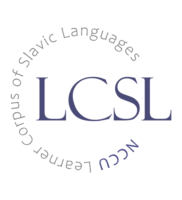2019-10 研討會論文發表 Conference Paper Published
Chui, K. & Yeh, H.-L. (2019). Cross-linguistic perspectives on FEAR in Russian and Mandarin Chinese. II World Congress “East-West: The Intersection of Culture”, 2, 728-734.
Abstract
This study investigated cross-linguistic perspectives on FEAR across Russian and Chinese. Based on a corpus analysis of the lexico-grammatical usages of 11,156 fear clauses in Russian and 11,075 in Chinese, three perspectives were distinguished. First, both languages employ the agentive viewpoint, with the agent-like experiencer being conceptualized in the nominative/subject position as prominent and volitional. There is language specificity, in that Russian tends to mention ‘stimulus’ in the clause, but Chinese prefers to profile ‘experiencer’ alone. Second, both languages also employ the thematic point of view, foregrounding the stimulus as nominative/subject for the idea of ‘something happens to somebody’. Such perspective can be conveyed in the Chinese causative structure together with the mention of the experiencer as object. Finally, Russian demonstrates the language-specific impersonal perspective, profiling the emotion state per se while backgrounding the two semantic roles. Overall, the results attest to linguistic universality and specificity in the expression of FEAR and reveal the underlying cognitive perspectivization of emotion across languages.

